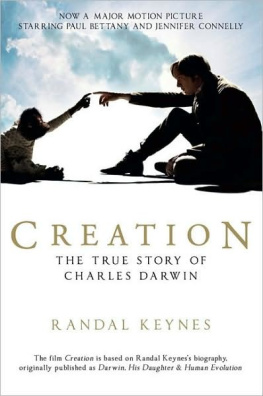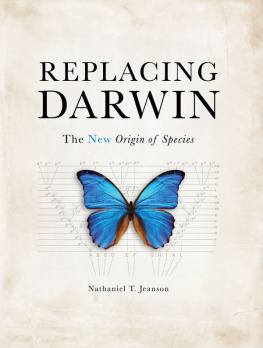Darwins Psychology

Great Clarendon Street, Oxford, OX2 6DP,
United Kingdom
Oxford University Press is a department of the University of Oxford. It furthers the Universitys objective of excellence in research, scholarship, and education by publishing worldwide. Oxford is a registered trade mark of Oxford University Press in the UK and in certain other countries
Oxford University Press 2020
The moral rights of the author have been asserted
First Edition published in 2020
Impression: 1
All rights reserved. No part of this publication may be reproduced, stored in a retrieval system, or transmitted, in any form or by any means, without the prior permission in writing of Oxford University Press, or as expressly permitted by law, by licence or under terms agreed with the appropriate reprographics rights organization. Enquiries concerning reproduction outside the scope of the above should be sent to the Rights Department, Oxford University Press, at the address above
You must not circulate this work in any other form and you must impose this same condition on any acquirer
Published in the United States of America by Oxford University Press
198 Madison Avenue, New York, NY 10016, United States of America
British Library Cataloguing in Publication Data
Data available
Library of Congress Control Number: 2020944739
ISBN 9780198708216
eISBN 9780191017902
Oxford University Press makes no representation, express or implied, that the drug dosages in this book are correct. Readers must therefore always check the product information and clinical procedures with the most up-to-date published product information and data sheets provided by the manufacturers and the most recent codes of conduct and safety regulations. The authors and the publishers do not accept responsibility or legal liability for any errors in the text or for the misuse or misapplication of material in this work. Except where otherwise stated, drug dosages and recommendations are for the non-pregnant adult who is not breast-feeding Links to third party websites are provided by Oxford in good faith and for information only. Oxford disclaims any responsibility for the materials contained in any third party website referenced in this work.
I dedicate this book to:
Jane Selby, for her love, life-force, and intellectual reach
Peter Sylvester-Bradley, fossil-hunter and visionary evolutionist
Colwyn Trevarthen, mentor and inspiration
There is nothing new in the world except the history you do not know. 1
1 Merle Miller, Plain Speaking: An Oral Biography of Harry S Truman(London: Gollancz, 1974), p.26.
Preface
The proper focus for psychological studies has remained in dispute from that day to this. Should mind scientists research solely the visible, measurable movements that behaviourists call responses? Or should they target mental states, consciousness, the inner life, or even the repressed conflicts glimpsed through dreams? And, if so, how could psychology ever be truly scientific? By the 1920s, the word crisis was referring to the embarrassing proliferation of incommensurable schools within the discipline: structuralism; functionalism; behaviourism; psychoanalytical; Gestalt; cultural-historical; social; personality; developmental; biological; comparative. More and more different starting-points were being invented and pursued at the same time in separate silos. Such proliferation has not slackened: humanist; ego; phenomenological; sociobiological; cognitivist; critical; discursive; dialectical; feminist; hermeneutic; postmodern; transpersonal; cognitive-behavioural; positive; and evolutionary psychologies continue to hatch and multiply.
Against this background, the need to present psychology as a coherent way of studying humans forced its adepts to bracket off discussion about starting-points and agree, instead, to agree on methods: the emblem of the laboratory; the ideal of experimentation; the importance of precisely defining variables; the careful aggregation of numerical data; and their statistical analysis.
But crises keep coming. From the 1960s on, the worm turned inwards, infecting trust in the validity of the experimental method itself. First came proof that the people upon whom psychologists experimented were far less passive than assumed, second-guessing the aims of the experiments in which they were enrolled, and then acting accordingly. This fed doubts about the relevance of research findings to anything beyond the little social drama of the particular study that gave rise to them.
Lately, we have the replication crisis. Our discipline staggers under the discovery that many of the findings produced by our most prized methods of research cannot be replicated in follow-up studies.











